How to plan a cottage garden — 5 simple steps that landscaping pros always follow
Landscaping experts explain how to plan the cottage garden of your dreams
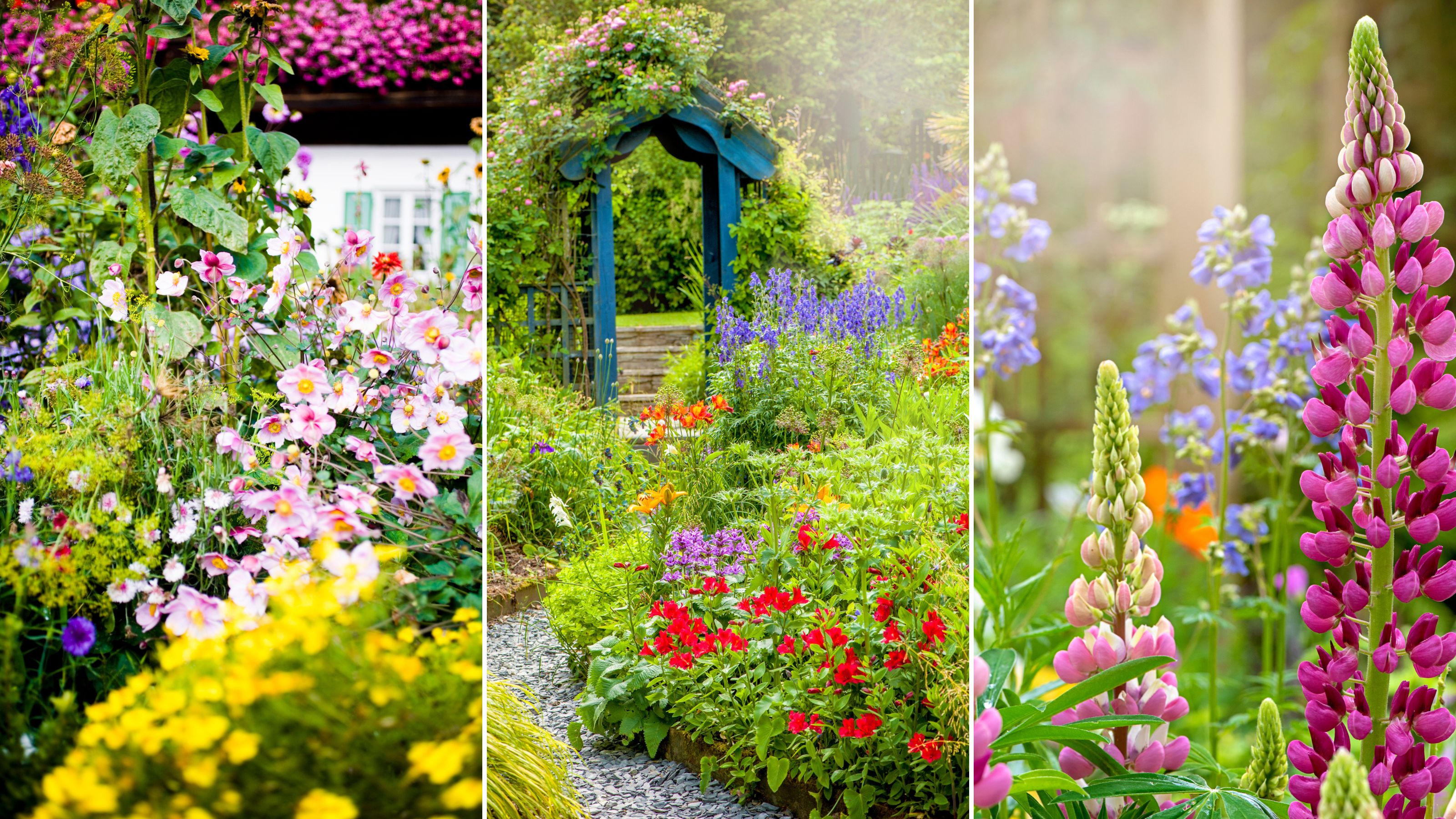

Learning how to plan a cottage garden is fab start in creating a dreamy, natural yard that's reminiscent of fairy tales and magical cottagecore spaces.
I've asked landscaping experts for the key steps that need to be taken when planning a cottage garden, from considering the layout to picking the right plants, and going all the way up to the perfect finishing touches. Basically, your backyard is going to look beautiful when you're done.
Once you've finished swooning over our cottage garden ideas, the next step is figuring out how to put them into practice in yours.
How to plan a cottage garden in five easy steps
For those looking to take a walk on the wild and whimsical side with landscaping ideas, cottage gardens are worth trying.
Our pros have recommended specific gardening and decor buys, which we've curated highly-rated matching picks for throughout to help you get started.
The prices below were correct at the time of publishing this article.
Step one: Plan the layout
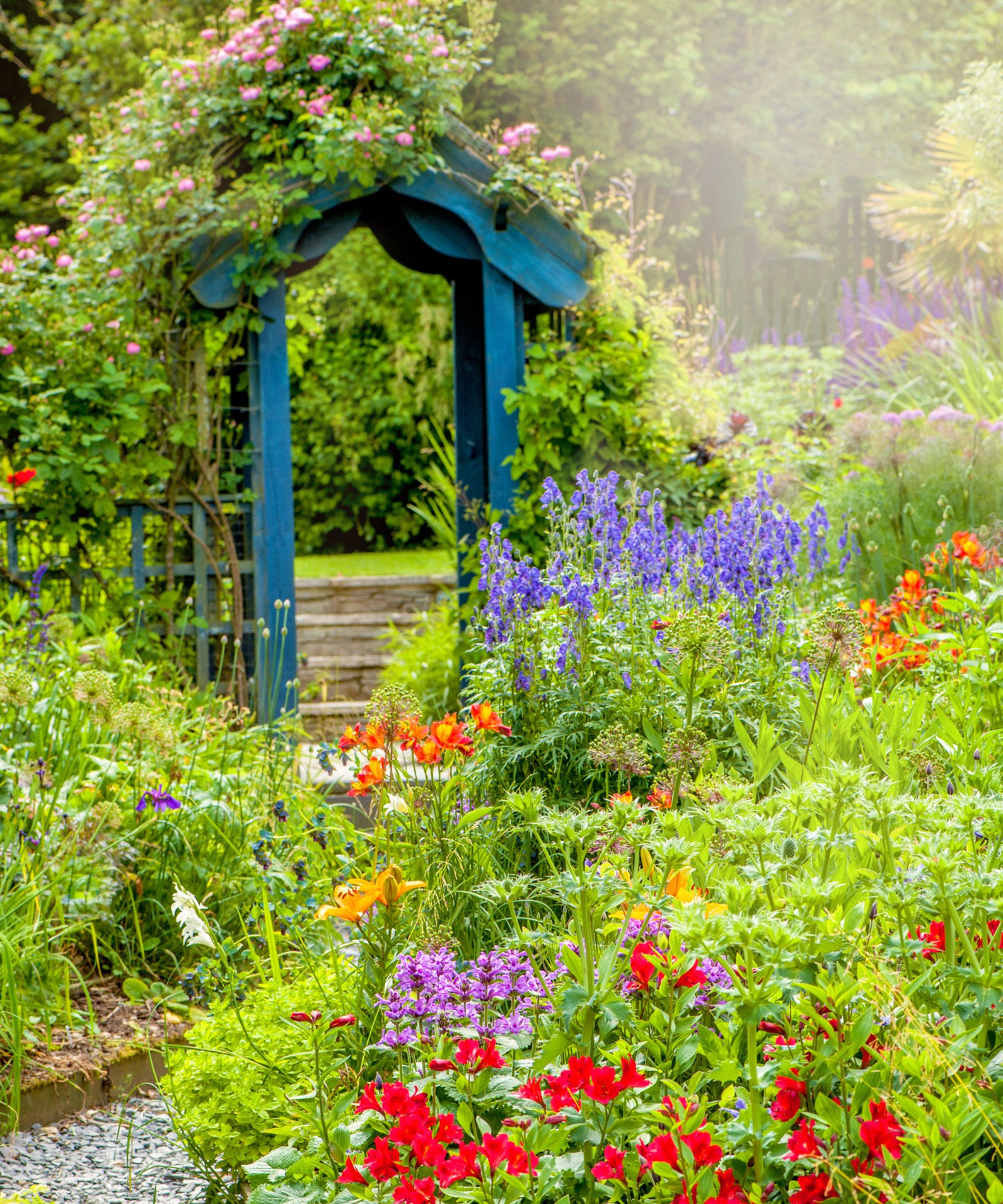
First of all, get your pen and paper ready, and start mapping out your cottage garden layout.
Get small space home decor ideas, celeb inspiration, DIY tips and more, straight to your inbox!
“I recommend creating informal, winding paths using natural materials like flagstone or reclaimed brick,” says Joe Gerrior, landscaping expert and founder of Gerrior Masonry & Landscape Construction Corp.
He continues, “This not only enhances the garden's rustic charm but also stands up well to strong weather conditions.”
Be sure to leave ample space between paths and planting flowerbeds to allow room for growth and maintenance.
Step two: Carefully select plants
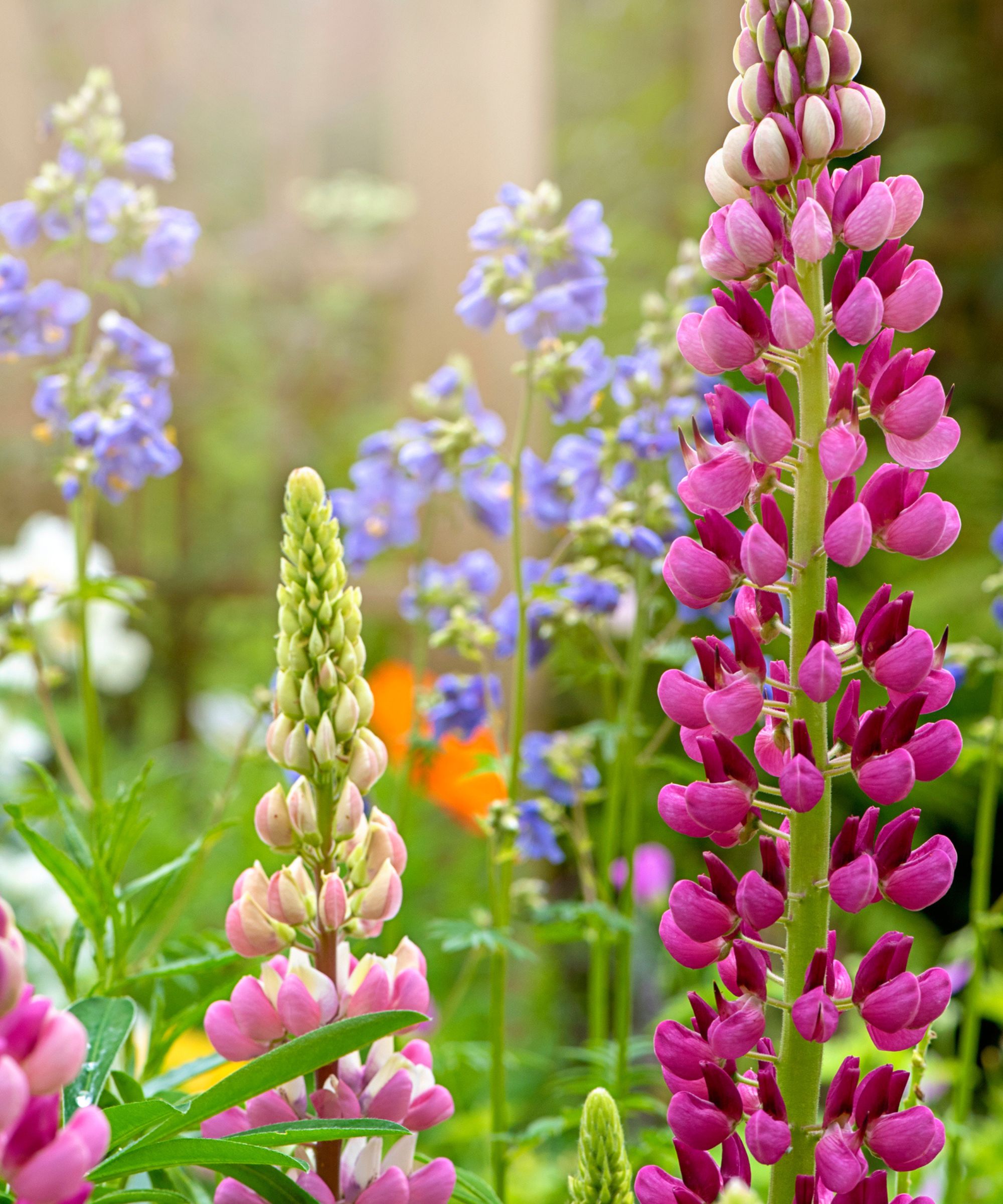
Creating a cottage garden is all about mixing up varieties in order to create a carefree yet oh-so-chic space.
“Perennials like lavender, foxgloves, and peonies provide structure and come back year after year, while annuals like cosmos and sweet peas add vibrant color,” suggests Marco Picano, landscaping expert and co-owner of Picano Landscaping.
You can start growing lavender at home by planting seeds, such as by using the Sow Right Seeds from Walmart that are non-GMO and come with planting instructions.
“Layer your plants by height, positioning taller varieties like delphiniums at the back and shorter plants like creeping thyme at the front,” Joe adds.
It's also possible to embrace chaos gardening into your scheme for that plant and fauna uninhibited edge.
“Just ensure you leave enough space for plants to grow while maintaining easy access to different garden sections,” Marco says.

Size: Medium
Made from: Cotton
Price: $12.95 for three
When adding different plants to your cottage garden, you're going to need a robust pair of gloves to ensure that your hands stay protected while doing so. I like the fact these have PVC dots that allow for extra grip and offer protection from thorns and thistles. They also dry extremely quickly.
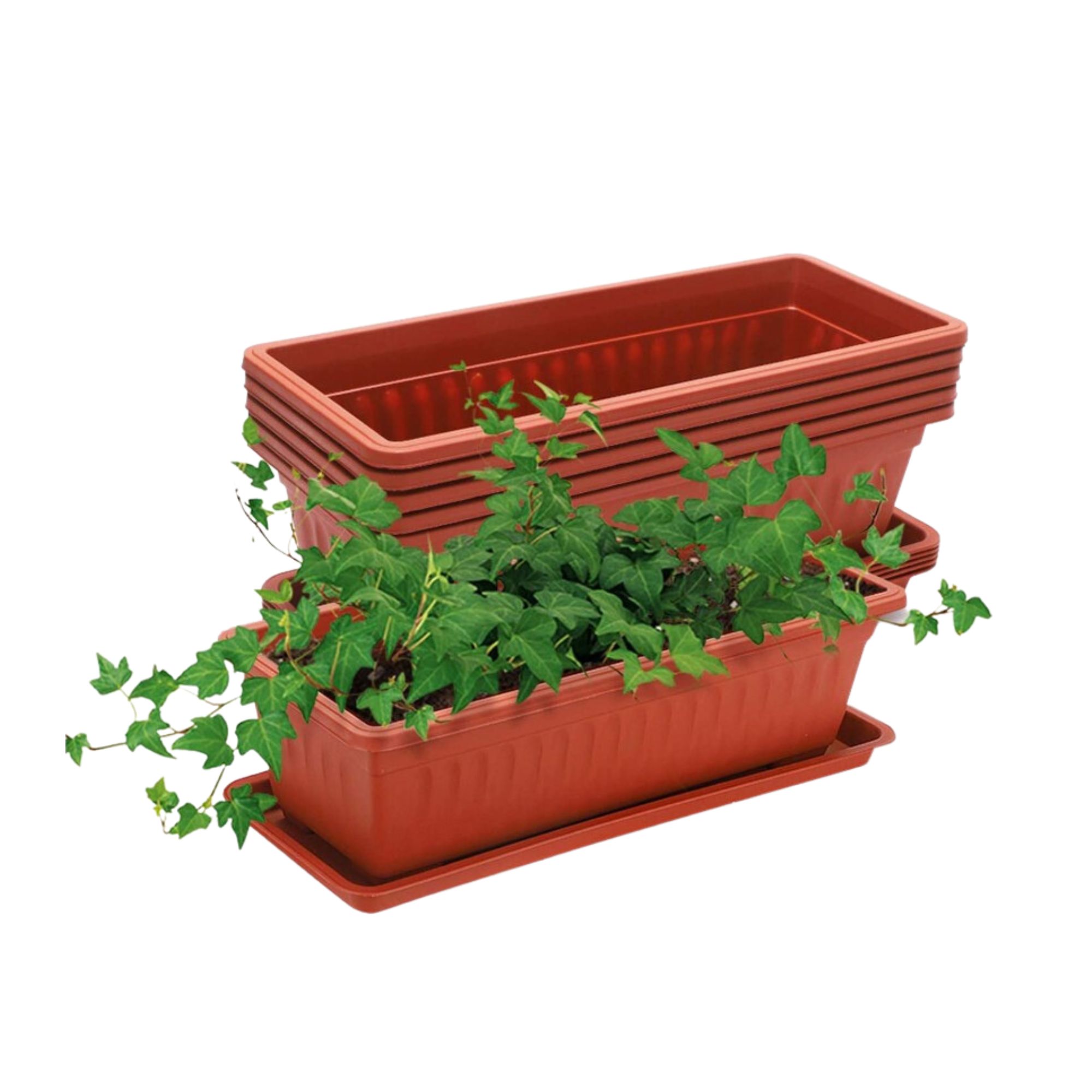
Size (in.): H4.9 x W15.7 x D6.3
Made from: Plastic
Price: $18.99 for six
Before you put flowers into the ground, I recommend growing them in a smaller container like this first and then transferring them out when they're stronger and a bit more resilient. These planters are a great shape for placing on a window ledge, so you can keep an eye on them and water, fertilize and transfer when required.
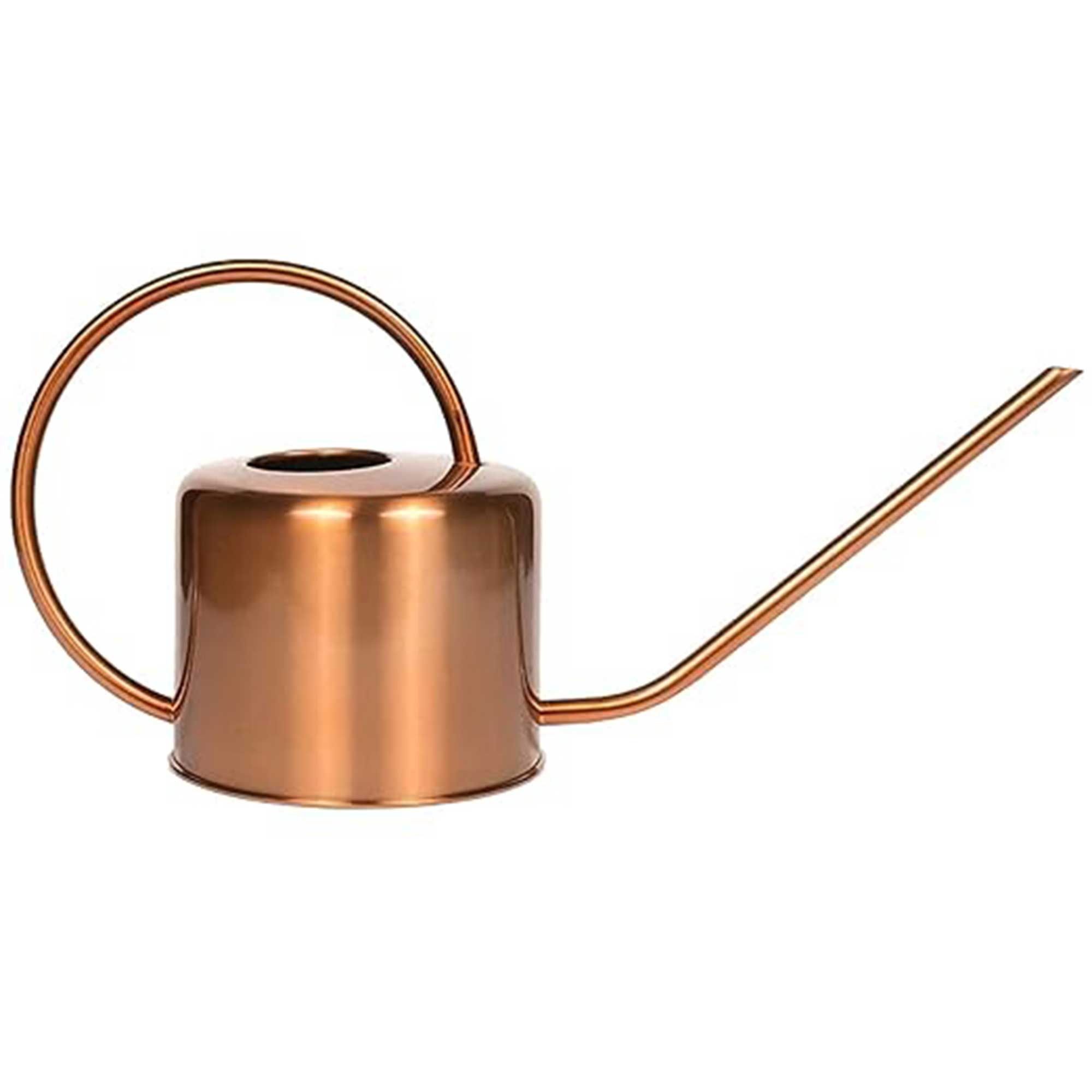
Size (in.): H5.5 x W9 x D15.5
Made from: Copper
Price: $29.99
Water your plants in style by using a watering can such as this one, which is as clever as it is chic. Copper is a natural heat conductor, which can help regulate the temperature of your plants. Available in an elegant copper or cute teal design, this small watering can is ideal for those planning a cottage garden in small backyards.
Step three: Layer your plants
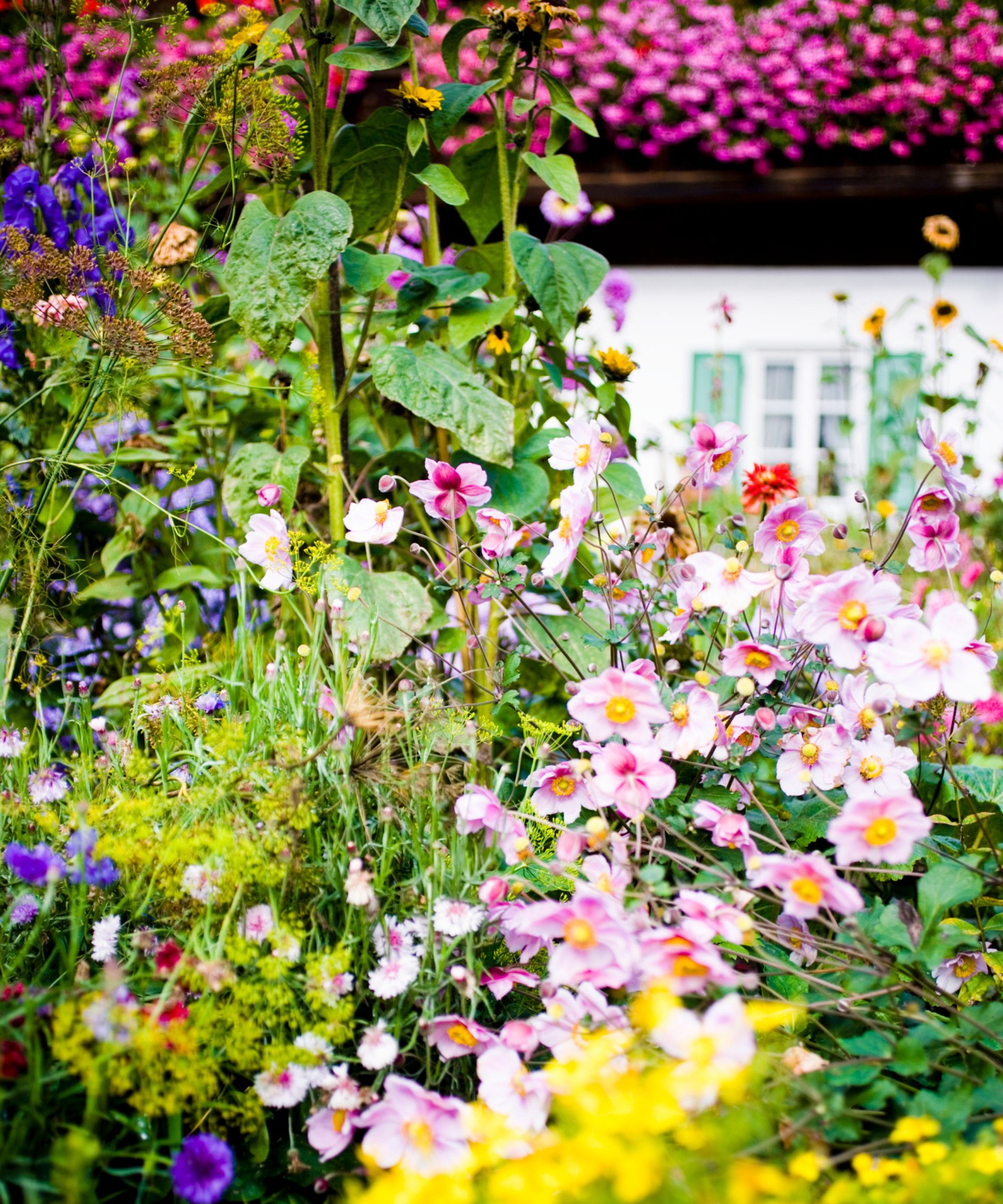
Make sure to layer plants based on height, with tall plants at the back or center and shorter plants at the edges.
“Position varieties like delphiniums at the back and shorter plants like creeping thyme at the front,” suggests Joe.
That being said, don't be afraid to get creative and mix up different heights. Just ensure you create a layered look when planning your cottage backyard.
As with all gardening, ensure the soil is good, rich in organic matter, and that the plants you choose suit your conditions and are good performers. You can check which gardening zone you are in to give your plant picks the best shot at survival.
Step four: Integrate hardscaping and decor
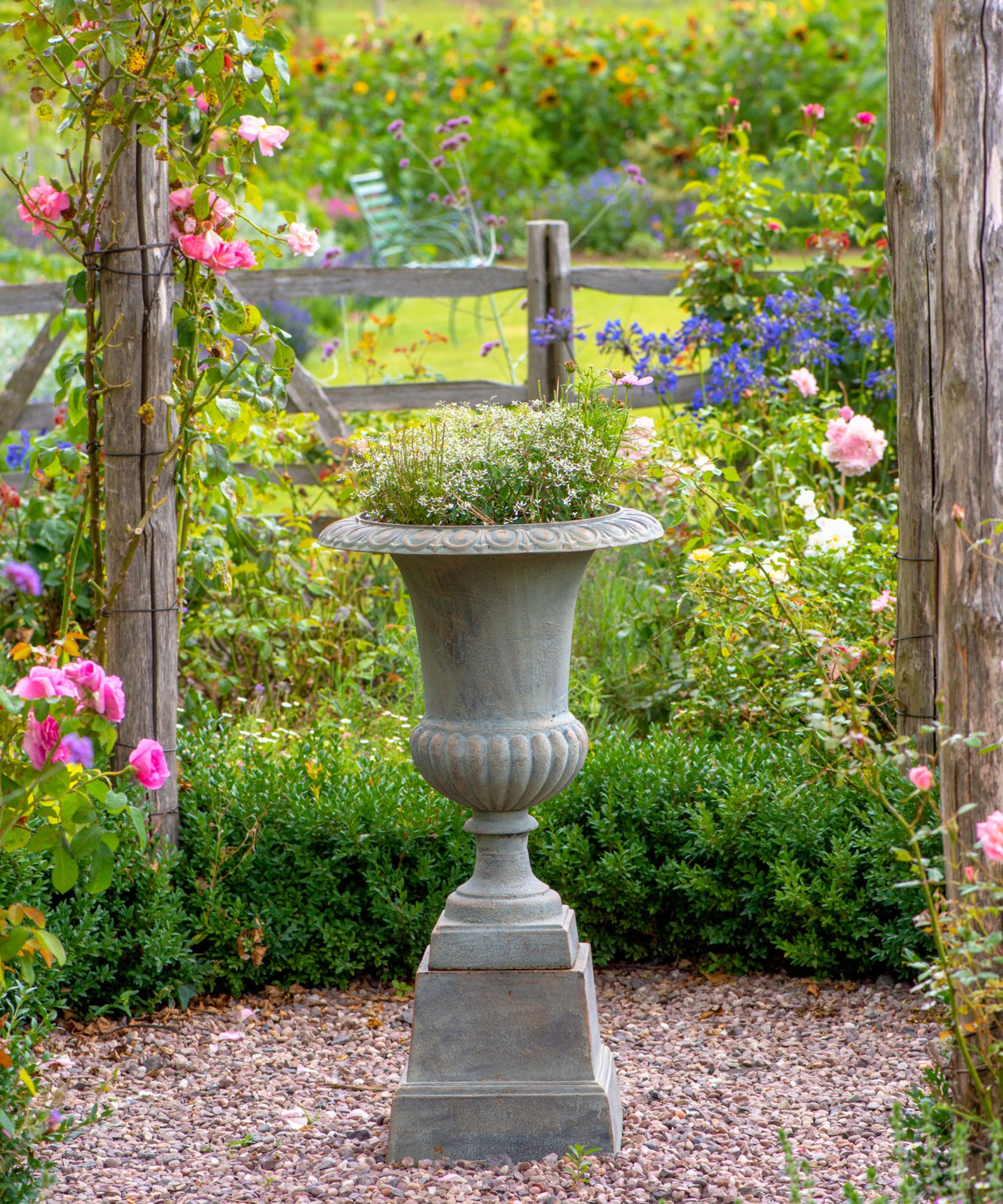
Once you’ve nailed the foundations of your cottage garden, it’s time to figure out what rustic decor you want to weave in.
“In terms of hardscaping, traditional elements such as wooden trellises, stone birdbaths, and wrought-iron benches are essential, as they add vertical interest and focal points,” says Joe.
If you want to create a Bridgerton-style cottage garden, the Vingli Outdoor Bench from Amazon has an antique design and is made from anti-rust aluminum.
Joe continues, “For pathways, using reclaimed materials adds an authentic touch and supports sustainability.”
Additionally, Joe suggests considering integrating water features like fountains to enhance the garden's serene atmosphere.
I think the Alpine Corporation Tall Outdoor 3-Tier Birdhouse from Amazon would look perfect in a cottage garden, thanks to its adorable design and relaxing water flow.
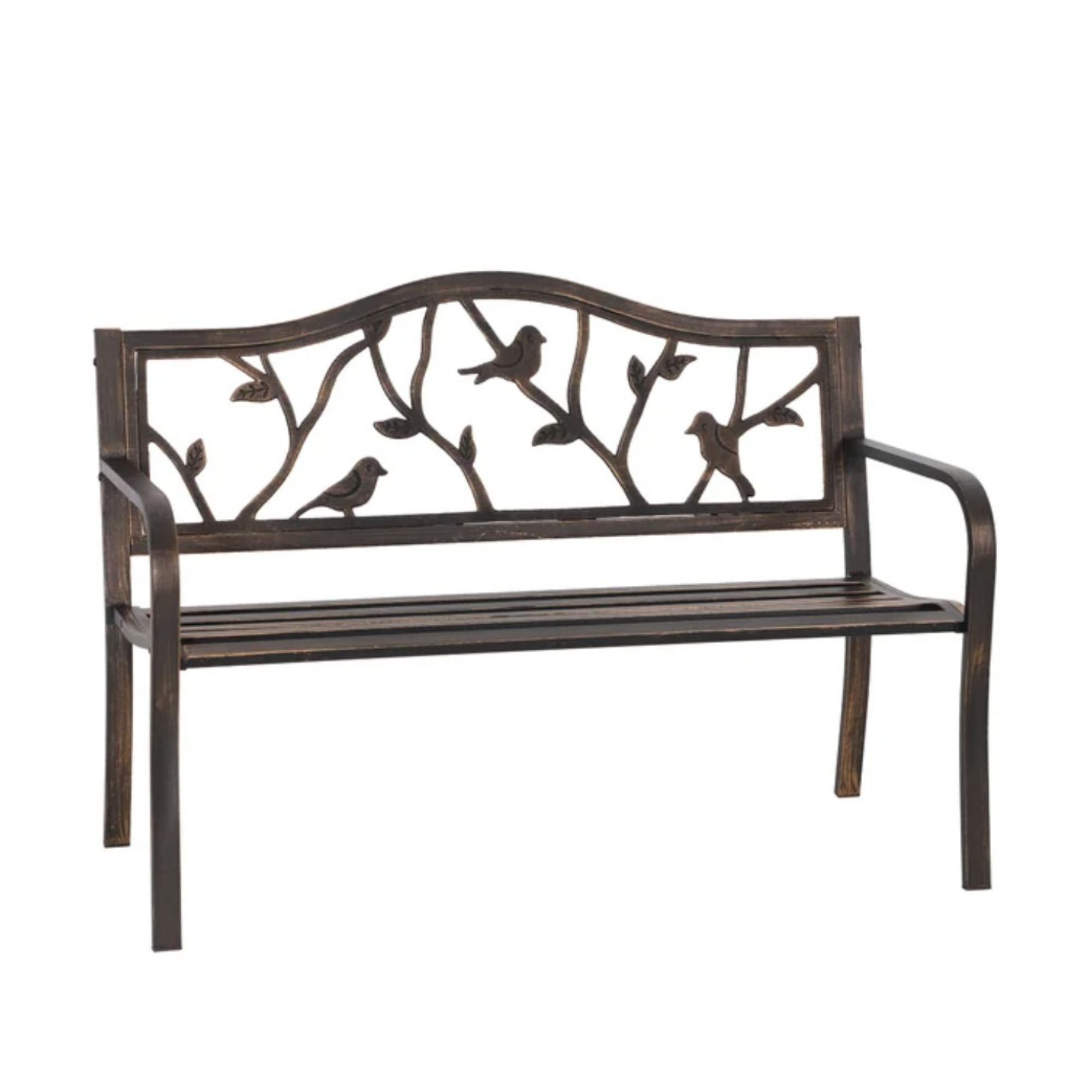
Size (in.): H50 x D23
Made from: Metal
Price: $125.99
Adding a whimsical bench like this into your cottage garden will create a lovely space for you to relax and take in all your hard work. It comes in brown and pinkish red, so whether you want to go for a more natural look or try colorful backyard ideas, you're covered. Assembly is required, but Wayfair shoppers say it doesn't take long.
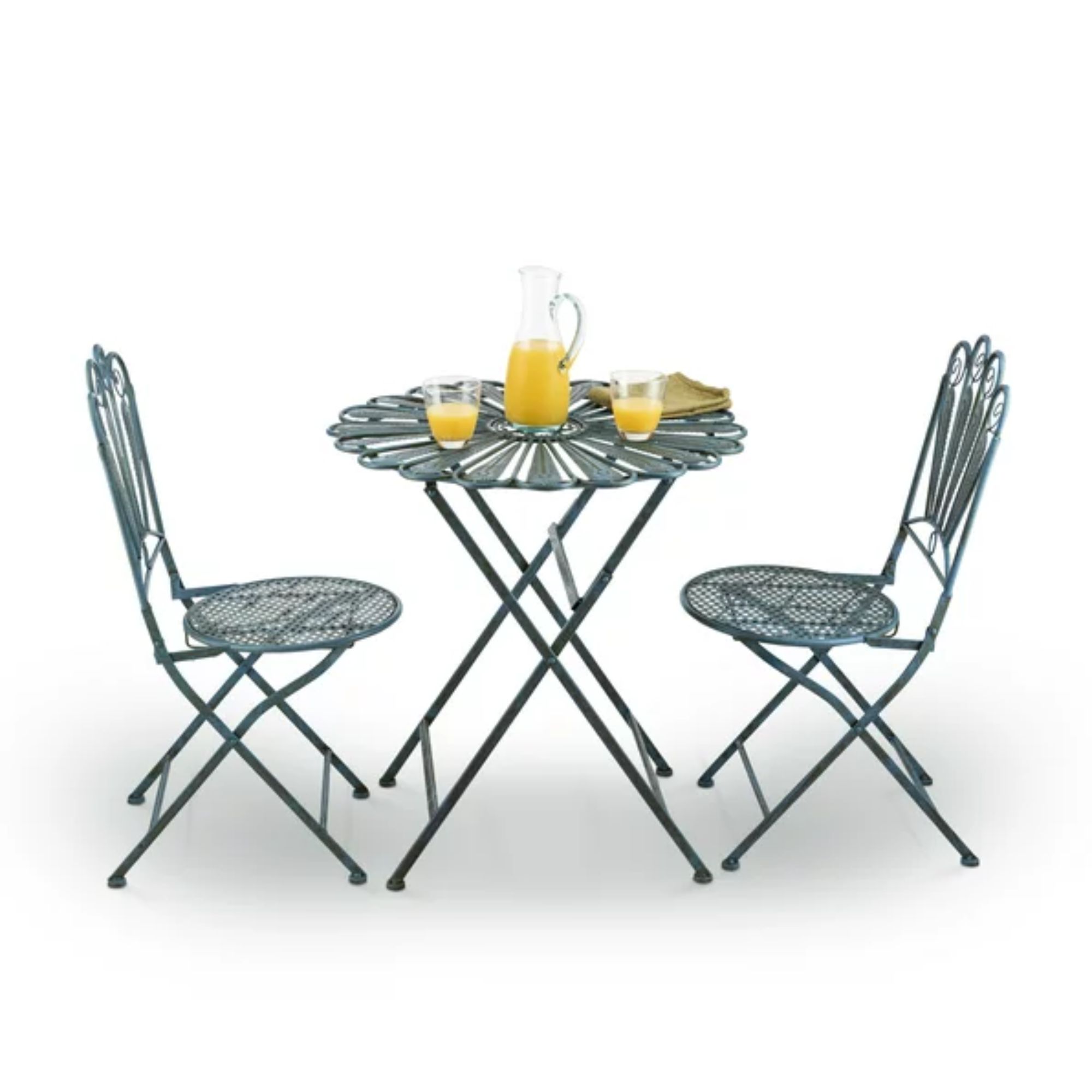
Size (in.): H36 x W21 x L16
Made from: Iron
Price: $169.99
Create a little zone of Zen in your cottage garden with this bistro set. It would look brilliant at the end of a winding path, with beautiful flowers all around it. It's small enough to fit in little gaps and all the parts fold when not in use, meaning you can store it easily during cooler months.

Size (in.): H28.5 x W20
Made from: PVC
Price: $39.99
Turn your cottage garden into a Snow White fantasy by adding this bird bath to attract feathered friends. It's the most highly-rated bird bath at Walmart, with over 600 shoppers giving it five stars thanks to its pretty style, easy assembly, and how spacious it is considering the size. It's also lightweight, so you can move it around easily.
Step five: Finish off with greenery
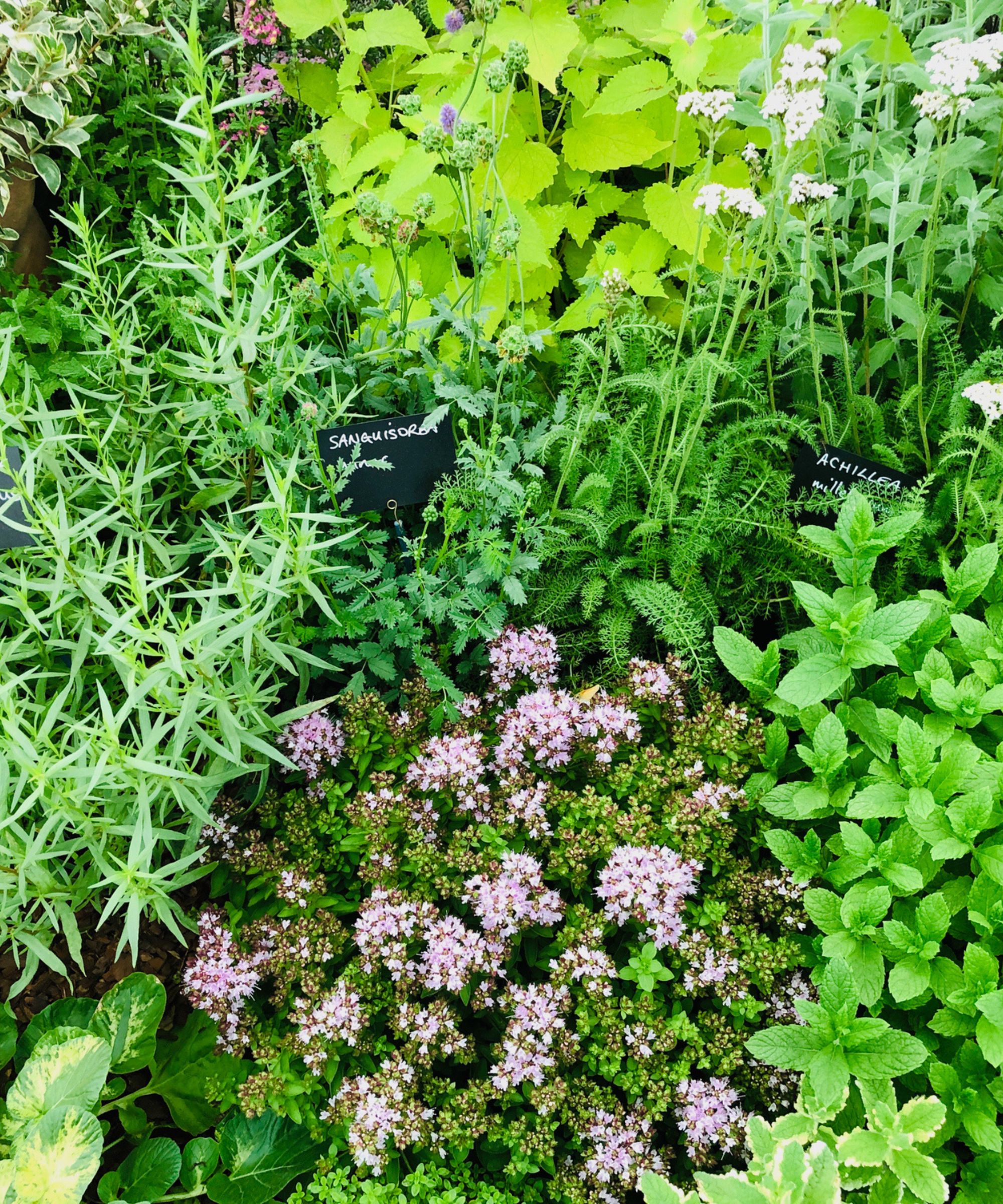
Once you’ve mapped out your paths, flowers, and decor elements, you can add touches of greenery to bring nature in. This is a key part of learning how to plan a cottage garden, as it will make the space feel more integrated with nature.
“Vertical gardens, potted herbs, and hanging baskets will add layers and depth to your design,” Joe explains.
I’ve got my eye on the sweet Mainstays Bronze Hanging Plant Basket from Walmart, which is lined with natural biodegradable coconut fiber and promotes healthy root growth.
These elements not only enhance the aesthetic but also contribute to the functionality of your garden. Using the vertical space you have is the perfect solution for small backyards and is so eye-catching.
Finding out how to plan a cottage garden before you start picking up your shovel will help you create a space that is intentional and gorgeous.
“By focusing on these core elements — layout, plant selection, and decor — you can create a stunning, functional cottage garden that thrives in any season,” Marco finishes by saying.
It’s also one of our favorite budget gardening ideas, as once you’ve got everything in place, it’s seriously cost-effective to maintain.

Hi there! I’m the former content editor at Real Homes and I'm now a freelance journalist.. I've been a lifestyle journalist for over five years, previously working as an editor across regional magazines. Before this, I graduated from Nottingham Trent University a degree in journalism, along with an NCTJ gold diploma. For Real Homes, I specialized in interior design, trends and finding the best viral buys.